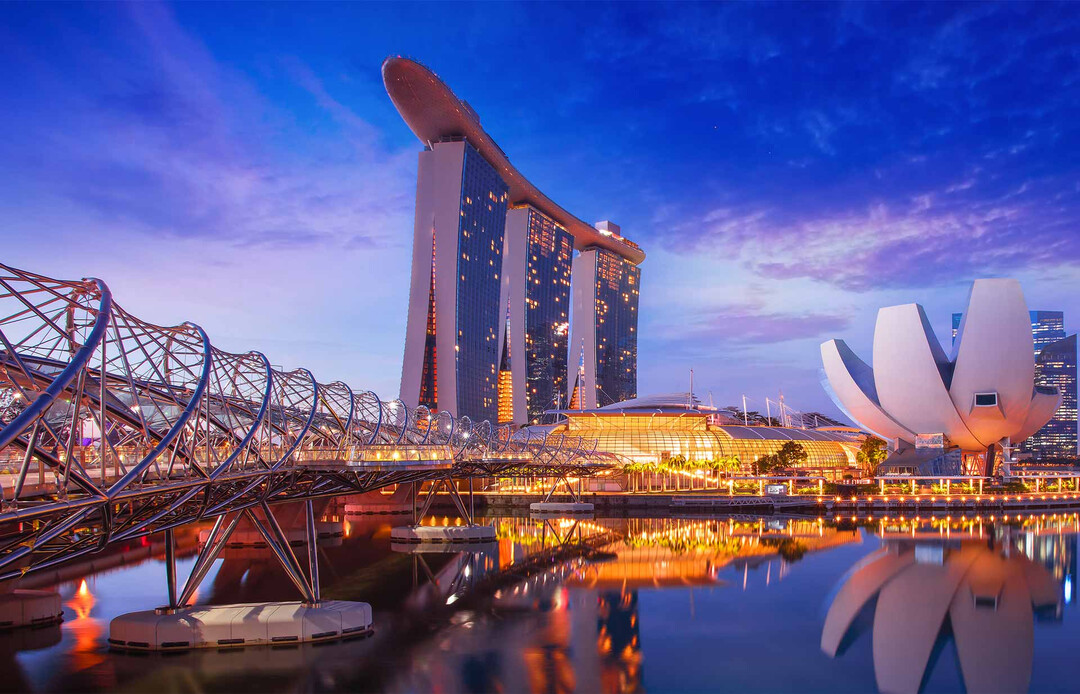
The Singapore Tourism Board (STB) announced last Friday that it would shift the central focus of its tourism policy from 'quantity' to 'quality'. The Singaporean government anticipates that tourism revenue will reach 50 billion Singapore dollars (approximately 68 trillion Korean won) by 2040, about 1.7 times the current level, signaling a focus on attracting high-value tourists.
In an interview with local media, STB Chief Executive Melissa Ow stated that in the coming years, the city will strive for qualitative improvement in tourism by focusing on increasing tourism expenditure at a higher rate than the growth rate of visitor numbers.
This announcement comes after Singapore achieved a record high of 16.5 million international tourist arrivals and 29.8 billion Singapore dollars (approximately 40.5 trillion Korean won) in tourism revenue for the year 2024.
On Friday, the STB further disclosed details of its 'Tourism 2040' roadmap, stating that its strategy will revolve around three key pillars: demand generation, enhancing Singapore's appeal, and developing a future-ready tourism industry.
In particular, the MICE (Meetings, Incentives, Conventions, and Exhibitions) industry is expected to be a major focus area. Grace Fu, Minister for Trade Relations, assessed the MICE industry as a "high-growth and high-quality visitor segment" at the STB's annual tourism industry conference, according to local media outlet The Straits Times.
Ms. Ow explained that the STB aims to triple MICE tourism revenue and increase the contribution of MICE tourists to total tourism revenue from the current 4% to 10% by 2040.
Key projects to achieve these goals include the potential development of a MICE hub in Singapore's downtown area and the revitalization of major tourist destinations such as Orchard Road and Sentosa. Notably, Sentosa is undergoing a 5 billion dollar expansion project at Resorts World Sentosa.
The STB also announced on Friday a 40 million Singapore dollar (approximately 54.4 billion Korean won) upgrade plan for the Marina Bay Cruise Centre Singapore. Expected to be completed next year, the upgrade will enhance the cruise center's capacity to accommodate increasing passenger numbers and facilitate simultaneous berthing of larger cruise ships, aligning with the trend of larger vessels.
Following the upgrade, the cruise center's capacity will increase from the current 6,800 to 11,700 people.
The STB stated, "These enhancements will focus on improving the passenger experience, with additional lounge facilities, spacious seating areas for embarkation and disembarkation, and check-in stations capable of accommodating two large cruise ships simultaneously."
Singapore's Tourism Industry Seeks Sustainable Development Through Qualitative Growth
Singapore's shift in tourism policy is interpreted as a move beyond simply increasing tourism revenue, demonstrating a commitment to minimizing environmental and social impacts and pursuing sustainable tourism industry development through the attraction of high-quality tourists.
The focus on fostering the MICE industry is seen as a strategic move considering that business travelers tend to have longer stays and higher spending compared to leisure tourists. Furthermore, the revitalization of major tourist spots like Orchard Road and Sentosa aims to further enhance Singapore's appeal, and the planned MICE hub is intended to proactively attract international business events.
The expansion of the Marina Bay Cruise Centre also appears to be part of a strategy to expand infrastructure in response to growing cruise tourism demand and to establish Singapore as a central hub for cruise tourism in Southeast Asia.
The Singapore Tourism Board's 'Tourism 2040' roadmap is expected to be a significant blueprint shaping the direction of Singapore's tourism industry over the next 15 years. The paradigm shift from a focus on 'quantity' to 'quality' raises anticipation for Singapore's potential to establish itself as a world-class, high-quality tourism destination, transcending its position in Asia.
[Copyright (c) Global Economic Times. All Rights Reserved.]






























